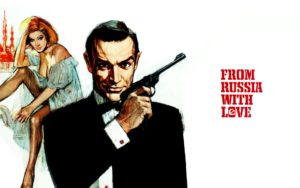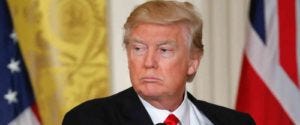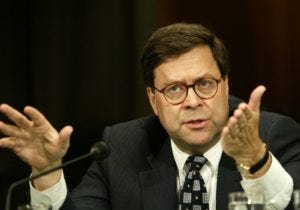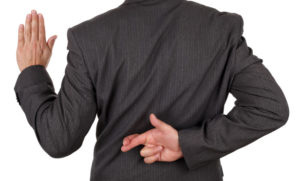The Mueller Report
The Mueller report has been out for a week now. It contains some surprises, most notably the details regarding Mueller’s decision not to make a prosecutorial judgment about whether the president obstructed justice. It describes some incidents we didn't know about, and provides much more detail and analysis regarding other events that had already been reported.
The report is lengthy and extremely detailed, and we'll be dissecting and examining it for some time. But here are my highlights and thoughts concerning a few key areas of the Mueller investigation and how Mueller resolved them. (Throughout this post I’ll cite to the report with volume number:page number; for example, I:15 is Volume 1, page 15.)
The Issue Is Conspiracy, Not Collusion
Volume One of the report deals with the Russian interference in the election and the possible involvement of any members of the Trump campaign. Throughout the investigation this has been misleadingly referred to as the “collusion” question. I wrote back when the investigation first began (and several times since) that the proper criminal term is conspiracy. If Americans worked with the Russians to influence the election, that could implicate federal conspiracy law.
Mueller begins Volume One by making this point. He notes that collusion is not a criminal term and that the relevant crime is conspiracy. He points out that proving a conspiracy requires proof of an agreement, tacit or express. It means more than just two parties taking actions responsive to each other’s actions or interests (I:2).
This is a critical distinction that underlies all of Mueller’s conclusions regarding Russian contacts. For example, suppose you are working to support a particular political candidate whose theme is that she is going to Congress to “drain the swamp.” You hold a rally with a clever green “drain the swamp” meme and promote it on social media, encouraging people to share the hashtag, #NoAlligators. I see your post and decide to hold my own “drain the swamp” rally for the same candidate. I use the same meme and hashtag, and also give all the attendees little stuffed alligators. You read about my rally, publicize it, and use the same stuffed alligator idea for your future rallies.
People looking at those events from a distance might suspect we were working together. But the fact that we saw each other’s ideas and actions, copied them, shared the same goals, and engaged in the same kind of activity does not establish that you and I had an agreement. This is essentially what Mueller found regarding the alleged Russian conspiracy. The Russians and the Trump campaign may have had the same goal – getting Trump elected – and may have responded to things that the other did, but that does not establish a criminal agreement. Mueller’s bottom line conclusion on the Russian conspiracy is this:
Although the investigation established that the Russian government perceived it would benefit from a Trump presidency and worked to secure that outcome, and that the Campaign expected it would benefit electorally from information stolen and released through Russian efforts, the investigation did not establish that members of the Trump Campaign conspired or coordinated with the Russian government in its election interference activities (I:1-2).
This makes sense to me, and by the time we were nearing the end of the investigation this is what I expected. The various contacts between the members of the campaign and the Russians may have been stupid, reckless, naïve, unpatriotic, sleazy, or some combination thereof, but the evidence did not establish they were part of an international criminal conspiracy.
Lots of Contacts, No Conspiracy
With the number of documented contacts between Russians and members of the Trump campaign, it's hard for many to believe there was not a conspiracy. But the Mueller report goes through them one by one and explains, in great detail, how the evidence of a conspiracy was not there.
For example, consider the well-known incident where Trump said at a rally, “Russia, if you’re listening, I hope you’re able to find the 30,000 [Hillary Clinton] emails that are missing.” Many saw this as evidence of a conspiracy unfolding in plain sight. The Mueller report notes that, as had been previously reported, Russian hackers began new searches for Clinton emails just a few hours after Trump made this statement (I:49). This is a prime example of Mueller’s point that merely taking actions responsive to each other’s interests does not establish a conspiracy. The Russians can watch TV like anyone else. They probably saw the speech and reacted to it. Trump may have been hoping that would happen, or he may have been joking, or he may have been just riffing without really thinking about it (most likely, in my view). But that doesn’t establish an agreement to work together. It just establishes that both parties are watching the same events, reacting to each other, and working to achieve the same goal. That is not a conspiracy.
Or consider the now-infamous June 2016 Trump Tower meeting between members of the campaign and Russians offering “dirt” on Clinton. The president’s son, Don Jr., agreed to the meeting and sent an email proclaiming, “If it’s what you say, I love it.” (I:113). Taking that meeting rather than reporting this overture to the FBI was at best reckless and inappropriate. But simply taking the meeting was not illegal. Proof of a criminal conspiracy would have hinged upon what was agreed to at the meeting and done as a result. But Mueller concluded the meeting itself was something of a bust. It only lasted about twenty minutes and the Russians failed to offer any useful information. Although the contact was suspicious and certainly indicated the campaign’s willingness to accept help from the Russians, Mueller did not uncover evidence that the meeting led to any conspiratorial agreement.
A similar analysis applies to many of the other contacts between Russians and the Trump campaign. For example, it was recently revealed that campaign manager Paul Manafort shared internal polling data with the Russians during the summer of 2016. Mueller discusses this as well, and says his investigation was unable to conclude exactly why Manafort did it (I:136). But the report suggests Manafort, who had extensive business dealings in Russia and Ukraine, probably was trying to raise his own stature in the eyes of his Russian contacts to advance his own interests – he reportedly told his associate Rick Gates that working on the campaign would be “good for business.” Manafort was primarily focused on helping Manafort, which would be consistent with the rest of his career.
This is the pattern throughout much of Volume One. Mueller describes the various Russian contacts with members of the campaign in great detail. He also explores suspicious events such as the pro-Russia changes made to the Republican party platform. His investigation concludes there were many suspicious contacts, that Russia was clearly interested in helping Trump get elected, and that the campaign was happy to accept the benefits of Russia's work. But the evidence did not establish that any members of the Trump campaign knowingly agreed to work with the Russians. In sum: lots of contacts, but no conspiracy.
Inability to Uncover All of the Evidence
Mueller notes his investigators were not able to uncover all possible evidence related to an alleged Russian conspiracy. Some evidence and witnesses are overseas and were unavailable. Some witnesses used encrypted apps to communicate and those messages could not be retrieved. Others deleted communications or files that could not be recovered. Some witnesses lied, and others took the Fifth and could not be interviewed. Other information was protected by legal privileges (I:10). As a result, Mueller wrote, although the report reflects his office’s best judgment concerning the factual and legal issues, he “cannot rule out the possibility that the unavailable information would shed additional light on (or cast in a new light) the events described in the report” (I:10).
In other words, absence of evidence is not evidence of absence. Mueller didn’t find sufficient evidence to prove a criminal conspiracy in court. That’s not the same as saying a conspiracy didn’t exist. For those convinced there was a conspiracy, this leaves the door open to argue that it did exist but the conspirators succeeded in covering it up.
The Trump/Russia conspiracy may be destined to become this generation's Kennedy assassination: debated for decades, with some forever convinced that Vladimir Putin was perched on the grassy knoll. But a prosecutor never learns absolutely everything in any case; to some extent Mueller is simply stating the obvious here. And the people around the president don’t strike me as sophisticated criminals likely to have successfully concealed a global conspiracy in the face of this massive, professional federal investigation.
Obstruction of Justice
Volume 2 of the report deals with obstruction of justice. The biggest surprise in the Mueller report was his decision not to make a “traditional prosecutorial judgment” concerning whether president Trump obstructed justice (II:1). Mueller said this was driven by Department of Justice policy, which says a sitting president cannot be indicted. It is also longstanding DOJ policy not to accuse someone of criminal misconduct if you are not going to charge them, because they will not have a chance to go to court to clear their name. Taking these two policies together, Mueller decided it would be inappropriate to accuse the president of obstruction if he can't be indicted and given the chance to defend himself. Instead, he decided to lay out the facts that he found, leaving decisions about the consequences to others. On the other hand, in contrast to the issue of Russian conspiracy, Mueller made it clear he was not comfortable concluding that the crime of obstruction had not been committed:
If we had confidence after a thorough investigation of the facts that the President clearly did not commit obstruction of justice, we would so state. Based on the facts and the applicable legal standards, however, we are unable to reach that judgment….Accordingly, while this report does not conclude that the President committed a crime, it also does not exonerate him (II:2).
I can understand why Mueller decided not to make the call on obstruction. But I don’t agree with his decision, and I think it was unfortunate. Although this was probably not what Mueller intended, this failure to reach a conclusion resulted in Attorney General Bill Barr taking it upon himself to decide. In his four-page summary of the report that he delivered to Congress, Barr said he and Deputy Attorney General Rod Rosenstein had concluded the president did not commit obstruction.
The entire point of a special counsel is to take such decisions out of the hands of political appointees like the Attorney General. But instead of the neutral professional prosecutor who oversaw the case for two years making the call, the politically appointed Attorney General, who is openly hostile to the idea that a president can ever be charged with obstruction, purported to exonerate the president. Now that we have the actual report we know, of course, that Barr’s purported summary was quite misleading and far too rosy in describing Mueller's findings. But I think the public deserved to have Mueller’s judgment on whether he had a prosecutable case on obstruction. From reading the report, my strong suspicion is that the answer would have been "yes."
The Law on Obstruction
Mueller’s report takes on some of the key legal issues concerning obstruction of justice. The most significant is whether the president can ever be charged with obstruction for actions otherwise within his constitutional authority, such as firing the FBI director. The president’s lawyers have argued it would violate the separation of powers to allow a president to be prosecuted for obstruction based on such actions, no matter how corrupt his motives. This argument is also made by Harvard Law professor Alan Dershowitz, and I've rebutted his claims in earlier posts (here and here). Attorney General Barr also endorsed this argument in the nineteen-page unsolicited memo on obstruction of justice he sent to the Department of Justice last year.
Mueller disagrees with this legal claim. His reviews the constitutional arguments and concludes that Congress has the power to enact laws to protect investigations and court proceedings from all manner of corrupt interference, even from the president. To hold otherwise, he argues, would be inconsistent with the fundamental principle that “no person is above the law” (II:8). I agree and think this has to be the correct answer.
A second claim advanced by the president's defenders is that you can’t obstruct justice if there is no underlying crime you were trying to cover up. If there was no Russian conspiracy, the argument runs, then there was no reason for the president to obstruct the investigation. But this is plainly wrong, as Mueller demonstrates in his report.
The president could have had a number of other motives to obstruct the Russia investigation. He may have been concerned that information about the Russian activities would undermine the legitimacy of his election or be otherwise politically damaging. He could have been trying to protect others who ended up being prosecuted, such as former national security advisor Michael Flynn. Or he could have been trying to obstruct the investigation because he thought it might potentially lead to criminal charges, even if it ultimately did not (II:76-77, 157). In sum, Mueller concluded there was no constitutional or statutory defense that would have prevented the president from being charged with obstruction.
Evidence of Obstruction
The report details substantial evidence of obstruction of justice by the president. It ranges from Trump firing FBI director James Comey, to Trump ordering his White House Counsel Don McGahn to fire Mueller and then ordering him to lie about it, to Trump trying to interfere with the investigation of Michael Flynn, to Trump potentially tampering with witnesses via Twitter. The report goes through each incident in detail, and notes some of the factual issues and legal defenses that could be raised.
Some of the particular allegations of obstruction, such as the firing of Comey, are not slam-dunk cases, as I discussed in this post. The report recognizes that as well (II:74). Mueller also notes, however, that you have to consider the president’s overall pattern of conduct as possible obstruction and not just focus on individual incidents (II:157). As a course of conduct, the evidence of obstruction is compelling.
One irony Mueller notes is that a number of the president’s attempts to obstruct justice were unsuccessful only because his subordinates refused to carry out his orders, such as his directives to fire Mueller or limit the scope of his investigation (II:158). Legally this doesn’t matter; an “endeavor” to obstruct justice is sufficient to violate the law and the obstruction need not succeed. But factually, it seems clear that the president’s staff protected him from his own worse instincts. This strengthened his ability to argue now that there was never any real obstruction.
Why Not Interview the President?
One key question surrounding Mueller’s investigation is why he did not insist on interviewing the president in person or subpoenaing him to the grand jury. Negotiations about a possible interview or testimony went on throughout the investigation, but Mueller’s team ultimately agreed to accept written answers from the president. These questions and answers appear at Appendix C to the report. They dealt only with the Russian conspiracy allegations; the president refused to answer questions about possible obstruction of justice.
Some have criticized Mueller for failing to subpoena the president, arguing that prosecutors could not decide the obstruction of justice questions without hearing from the president himself about his state of mind. I think this criticism is misplaced. Prosecutors are used to making judgments about obstruction of justice and corrupt intent without being able to interview suspected defendants, who usually will assert the Fifth Amendment. In this regard, at least, this case is not unusual.
Subpoenaing the president would almost certainly have led to a lengthy court battle that would have delayed the outcome of the investigation even further. Even if Mueller prevailed, in the end the president could come into the grand jury and take the Fifth and Mueller still would not have the information. Testimony could have led to assertions of executive privilege or other privileges, which could have led to more court battles and delays. Or the president could have lied, which might lead to separate allegations of perjury but would not help Mueller get to the truth. In the end, Mueller made a strategic judgment that he had enough information from other sources and that the fight and delays that would come with subpoenaing the president were not worth it (II: 13-14 and App. C). I think that judgment was perfectly reasonable.
Cover-up Crimes
The report also describes the investigation into a number of cover-up crimes committed by those who lied to investigators or to Congress about their Russian contacts or other issues (I:192). Some of these resulted in charges, such as the cases against Michael Flynn, George Papadopoulos, and Michael Cohen. The report also discusses some who were investigated for possible cover-up crimes but not charged, such as former Attorney General Jeff Sessions. Sessions was accused of possible perjury in his confirmation hearing testimony concerning his contacts with Russian officials. I discussed that allegation here and concluded that perjury charges were unlikely. The accusation led Sessions to recuse himself from the Russia investigation, but Mueller ultimately determined criminal charges were not appropriate (I:197).
What Comes Next?
Mueller lacked the authority to indict a sitting president. More than once in the report, however, he notes that once a president is out of office he is no longer immune from prosecution. Mueller also noted it was important for him to conduct a thorough investigation to collect and preserve the evidence for any possible future use (II:1-2). This almost seems like an open invitation to future prosecutors to consider a case.
If Trump loses re-election in 2020, the five-year statute of limitations on obstruction of justice will not have expired. A Democratic administration may have to decide whether to indict the former president. Congress also has a role, of course, and there is currently a lot of debate among Democrats over whether to begin impeachment hearings. Seeing some of the witnesses discussed in the Mueller report testify live would definitely help inform the country about these events, even if Congress ultimately decides not to impeach.
We should not lost sight of the fact that whether the president engaged in criminal conduct is not the only relevant question. We should expect more from our leaders than simply that they managed to escape indictment. The Mueller report paints a damning portrait of a candidate who welcomed foreign interference in our election, welcomed and endorsed the release of emails stolen from his opponent by a foreign adversary, and made repeated efforts to thwart the investigation into his own misconduct. Even if not all of these activities were criminal, they were deplorable and should be a huge part of the political dialogue heading into 2020.
One final intriguing aspect of the report is Appendix D, which lists cases Mueller determined were outside the scope of his investigation and were referred to other offices. We already know about two of them: Michael Cohen, the president’s former personal attorney, and Greg Craig, a partner at the law firm of Skadden, Arps recently charged with lying to investigators about his work involving Ukraine and Paul Manafort. But there are twelve additional ongoing investigations that are redacted. That’s a lot of cases. This suggests there may be a lot of news still to come about the offshoots of the Mueller probe. The president’s legal woes may be far from over.






